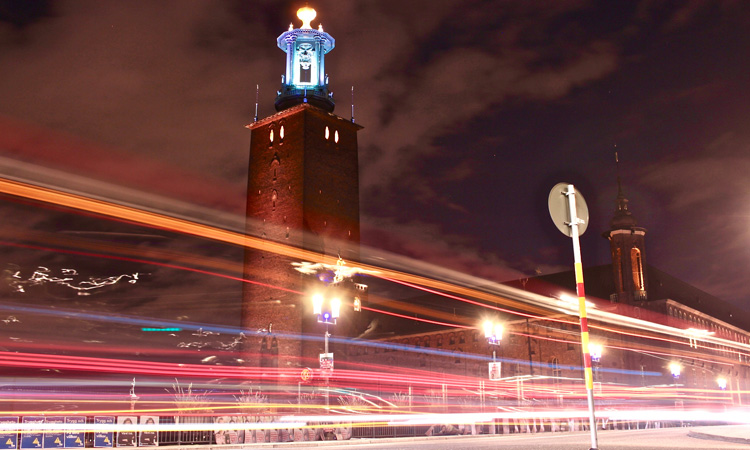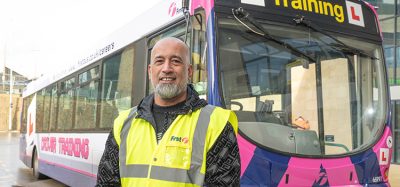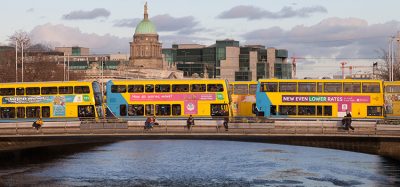Transdev signs Swedish public transport contracts worth €1.2 billion
- Like
- Digg
- Del
- Tumblr
- VKontakte
- Buffer
- Love This
- Odnoklassniki
- Meneame
- Blogger
- Amazon
- Yahoo Mail
- Gmail
- AOL
- Newsvine
- HackerNews
- Evernote
- MySpace
- Mail.ru
- Viadeo
- Line
- Comments
- Yummly
- SMS
- Viber
- Telegram
- Subscribe
- Skype
- Facebook Messenger
- Kakao
- LiveJournal
- Yammer
- Edgar
- Fintel
- Mix
- Instapaper
- Copy Link
Posted: 2 June 2020 | Sam Mehmet (Intelligent Transport)
The deals are said to mark the continuation of Transdev’s development in Europe, both in traditional transportation modes (buses, trains) and in those designed to support the continuation of the European Green Deal (electric and hydrogen buses).


Following European calls for tenders, Storstockholms Lokaltrafik (SL), Stockholm’s public transit authority, has awarded Transdev three new public transport contracts valued at a total of €1.2 billion for the operation of buses and suburban trains in the north of the Swedish capital.
In Sweden, the three contracts cover bus operations in the municipalities of Norrort and Norrtälje, as well as the operation of the Roslagsbanan trains (Roslagen railway lines), a 65 km, 38-station suburban train network departing from Stockholm East station and comprising three lines serving the cities of Kårsta, Österskär and Näsbypark. More than 43 million journeys are made each year in these three service areas, which will be operated by a team of 1,200 employees.
Services to Norrort and Roslagsbanan will begin in April 2021, and to Norrtälje in June 2021. The bus contracts run for nine years until 2030, while the 12-year train contract runs until 2033. During the contract period, SL will make major investments on the Roslagsbanan train lines with the construction of a double track and a new depot in Vallentuna as well as a new station in Arninge. In addition, 22 new trains will be gradually introduced into the network between 2022 and 2024, resulting in greater frequency and better quality of service for passengers.
Transdev will also introduce new duplex buses on the line between Stockholm and Vaxholm, and on-demand transport options will also be introduced in two areas in the municipalities of Norrtälje and Vallentuna.
In the Netherlands, Transdev has announced it is continuing its offensive in sustainable mobility, with an order for battery- and hydrogen-powered electric buses.
These 100 per cent zero-emission buses, with 85 seats, will replace Euro VI diesel buses and will have a range of over 350 km. The batteries have been designed to operate at high power levels when starting and stopping the vehicle, so the fuel cells used are designed to work continuously. In addition, the buses will have rear-view cameras and monitoring screens instead of the traditional rear-view mirrors.
This investment has been made possible by the support of the “Joint Initiative For Hydrogen Vehicles Across Europe” (JIVE and JIVE2), two programmes co-funded by the European Union under Horizon 2020, Hydrogen Europe and Hydrogen Europe Research.
In France, in November 2019, Transdev put into commercial service the country’s first hydrogen-powered electric BRT line in the Hauts-de-France region (TADAO network, Artois-Gohelle).
At the end of 2019, Transdev was already operating more than 800 electric buses worldwide and is expected to have a fleet (operated and on order) of 1,200 electric buses (battery-powered, battery and hydrogen fuel cell-powered) by the end of 2020.
Related topics
Business Models, Fleet Management & Maintenance, Mobility Services, On-Demand Transport, Public Transport
Related modes
Bus & Coach, Train
Related cities
France, Sweden, The Netherlands
Related organisations
Storstockholms Lokaltrafik (SL), Transdev








